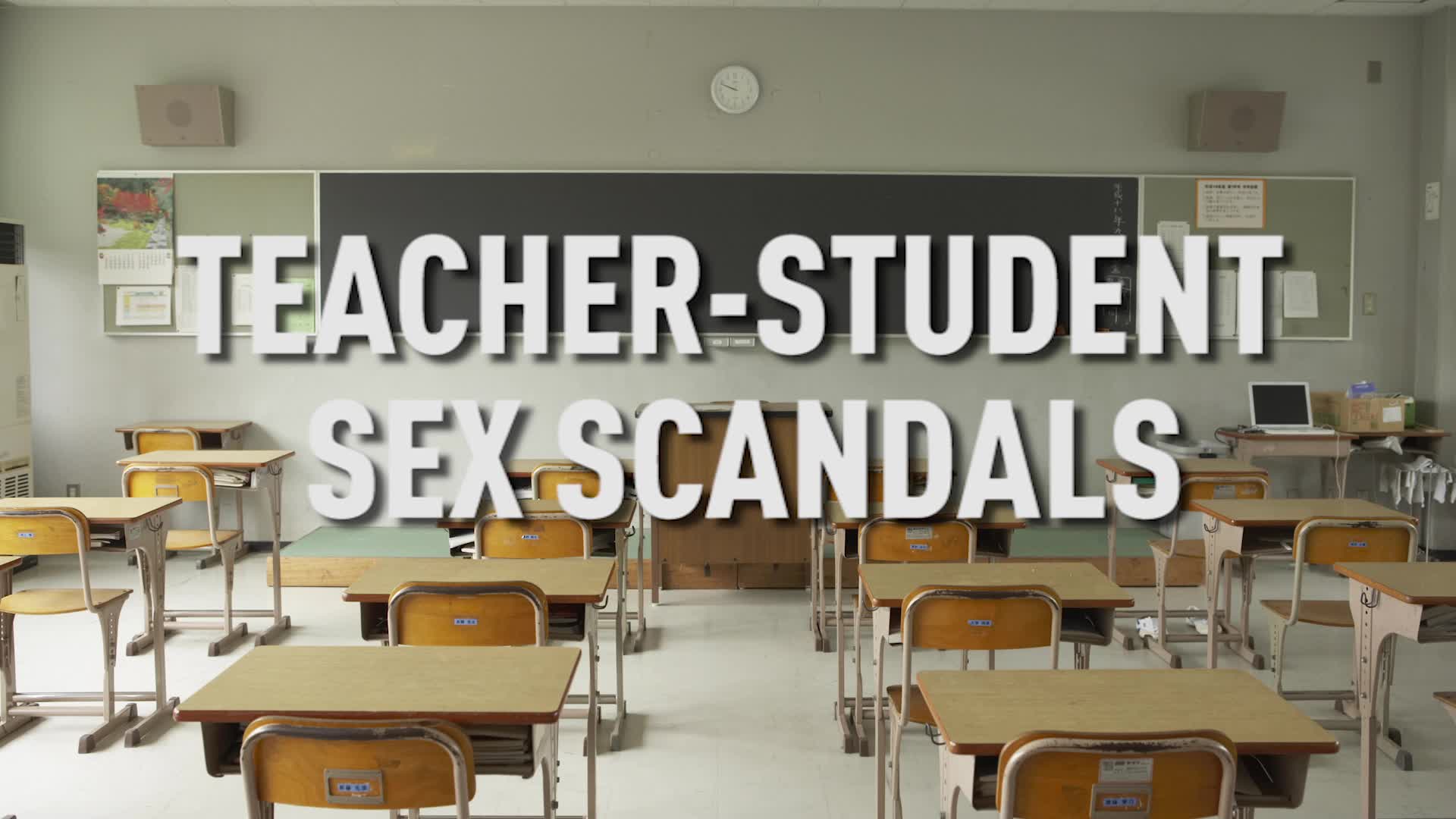Sex Teacher Student Video: A Comprehensive Guide On Navigating Sensitive Topics
In the age of digital information, the topic of sex teacher student video has become increasingly relevant and often controversial. As society evolves, understanding the implications and context of such content is crucial. This article aims to provide a comprehensive and responsible exploration of the subject, ensuring that readers are well-informed and aware of the ethical boundaries surrounding this issue.
Sex education is an essential part of modern education, and videos have become a popular medium for delivering such content. However, the intersection of teachers, students, and educational materials involving sensitive topics requires careful consideration. This article will delve into the nuances of this subject while maintaining a focus on ethical guidelines and professional boundaries.
Through this exploration, we aim to address the concerns of parents, educators, and students alike. By understanding the role of digital media in education, we can ensure that sensitive content is handled responsibly and effectively. Let's begin by examining the context and importance of this topic.
Read also:Ximenia Saenz The Extraordinary Life And Achievements Of A Cultural Icon
Table of Contents
- Introduction
- Understanding the Context of Teacher Student Videos
- The Importance of Responsible Content Creation
- Ethical Considerations in Educational Videos
- Legal Implications of Teacher Student Videos
- Best Practices for Creating Educational Content
- Psychological Impact on Students
- The Role of Teachers in Digital Education
- Parental Guidance and Involvement
- The Future of Digital Education
- Conclusion and Call to Action
Understanding the Context of Teacher Student Videos
In today's digital age, the concept of a teacher student video has taken on new dimensions. These videos can range from instructional content to more sensitive material, depending on the context. For educators, creating or using such videos requires a deep understanding of the audience and the potential impact.
Defining the Scope of Content
When discussing sex teacher student videos, it's important to clarify the type of content being addressed. In many cases, these videos are part of comprehensive sex education programs designed to inform students about reproductive health, consent, and relationships. However, the term can also be misused or misunderstood, leading to controversy.
- Instructional videos for sex education
- Content created by educators for educational purposes
- Misinterpretations or misuse of the term
By defining the scope of content, educators and policymakers can better address the needs of students while maintaining ethical standards.
The Importance of Responsible Content Creation
Creating responsible content is essential in the realm of digital education. When it comes to sex teacher student videos, the stakes are high, as the content can have lasting effects on students' understanding of sensitive topics.
Key Factors in Content Creation
Several factors contribute to the effectiveness and ethicality of educational videos:
- Accuracy of information
- Cultural sensitivity
- Age-appropriate content
- Clear communication of key messages
By prioritizing these factors, educators can ensure that their content is both informative and respectful.
Read also:Understanding Chi940muepsilontau 941iotanutauzetaepsilonlambda Rho941iota Kappa940iotalambdaalpha A Comprehensive Guide
Ethical Considerations in Educational Videos
Ethics play a critical role in the creation and dissemination of teacher student videos. Educators must navigate complex issues such as privacy, consent, and cultural norms to ensure that their content is appropriate and respectful.
Addressing Ethical Challenges
Some of the key ethical considerations include:
- Obtaining consent from all parties involved
- Protecting the privacy of students and educators
- Avoiding sensationalism or exploitation
By adhering to ethical guidelines, educators can maintain trust with their audience and uphold professional standards.
Legal Implications of Teacher Student Videos
From a legal perspective, the creation and distribution of sex teacher student videos must comply with local and international laws. Educators must be aware of the potential legal ramifications of their content and take steps to ensure compliance.
Understanding Legal Frameworks
Key legal considerations include:
- Child protection laws
- Intellectual property rights
- Regulations governing educational content
By staying informed about legal requirements, educators can avoid potential pitfalls and ensure that their content is lawful and ethical.
Best Practices for Creating Educational Content
Creating effective and ethical educational content requires adherence to best practices. For sex teacher student videos, this involves careful planning, collaboration, and feedback from stakeholders.
Steps to Follow
Here are some best practices for creating educational videos:
- Collaborate with experts in the field
- Gather feedback from students and parents
- Use clear and concise language
- Ensure accessibility for all learners
By following these guidelines, educators can create content that is both informative and engaging.
Psychological Impact on Students
The psychological impact of sex teacher student videos cannot be overlooked. Students may have varying reactions to such content, depending on their age, background, and personal experiences.
Addressing Student Reactions
Some strategies for addressing potential psychological effects include:
- Providing a safe space for discussion
- Encouraging open communication
- Offering additional resources for support
By prioritizing the mental well-being of students, educators can ensure that their content is both informative and supportive.
The Role of Teachers in Digital Education
Teachers play a crucial role in the development and implementation of digital education. When it comes to sex teacher student videos, educators must balance their responsibilities with the needs of their students.
Key Responsibilities
Some of the key responsibilities of educators include:
- Creating age-appropriate content
- Ensuring ethical and legal compliance
- Fostering a supportive learning environment
By fulfilling these responsibilities, teachers can contribute to the success of digital education initiatives.
Parental Guidance and Involvement
Parents play an essential role in the education of their children, especially when it comes to sensitive topics like sex education. Involving parents in the process of creating and using sex teacher student videos can enhance the effectiveness of the content.
Encouraging Parental Participation
Strategies for involving parents include:
- Providing access to educational materials
- Hosting informational sessions
- Encouraging open communication
By engaging parents, educators can create a more comprehensive approach to digital education.
The Future of Digital Education
As technology continues to evolve, the future of digital education holds immense potential. Sex teacher student videos will likely become even more prevalent, making it essential for educators to stay informed and adaptable.
Trends in Digital Education
Some emerging trends in digital education include:
- Increased use of virtual reality
- Personalized learning experiences
- Greater emphasis on ethical considerations
By embracing these trends, educators can enhance the quality and effectiveness of their content.
Conclusion and Call to Action
In conclusion, the topic of sex teacher student video is complex and multifaceted. By understanding the context, importance, and ethical considerations of such content, educators can create materials that are both informative and responsible.
We invite readers to engage with this content by leaving comments, sharing their thoughts, and exploring related articles. Together, we can promote a more informed and ethical approach to digital education.
For further reading, consider exploring additional resources on sex education, digital literacy, and ethical content creation. Let's continue the conversation and work towards a brighter future for digital education.



